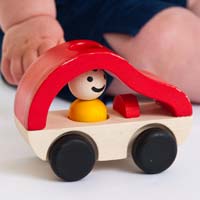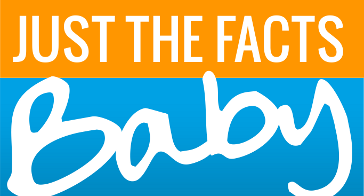Does Your Baby Have Eczema?

How to treat infant eczema
Although there is no cure for eczema, it can be controlled and usually disappears before age two. Here are some general guidelines for dealing with infant eczema:
1. Give it a little time. “Sometimes dryness will improve if you simply stop using soap or rough washcloths,” says Dr. Shu. Try adding non-allergenic oil to your child’s bathwater and switching to gentle, fragrance free shampoo and body wash.
2. Make it wet. Apply a gentle, unscented, sticky moisturizer (such as Aquaphor, Eucerin and Vaseline) frequently during the day, she says. Products marketed as "baby eczema creams" may also help. “If you've just bathed your baby, apply moisturizer while the skin is still damp,” says Dr. Shu. “If your baby is prone to dry skin and eczema, you may need to apply moisturizer regularly to prevent it from flaring up again.”
3. Soften rough spots. If a moisturizer isn't doing the trick, you may need something stronger, such as an over-the-counter hydrocortisone cream (which comes in 0.5% and 1%), says Dr. Shu. “These can be used for a few days to treat the most red or irritated areas, which often clear up within a week of twice-daily applications.” After that, applying a moisturizer at least once daily can keep the skin from getting worse. If it doesn't get better, see your doctor so you can try something else before the irritation worsens.
4. Do some detective work. Is your baby scratching or has he tried a new food or product recently? “Certain foods, exposure to some animals, detergents, or fabrics can cause skin problems,” says Dr. Shu. “If your child's dry skin seems to come and go, keep a diary so you can look back a day or two from when the irritation started.” Also, keep your baby's nails clean and short so he'll be less likely to infect any broken skin.
5. Stay cool. Make sure your baby’s bath is lukewarm and dress him in loose cotton fabrics to avoid overheating.
6. Try bleach baths. A 2009 study in the journal Pediatrics found giving children diluted bleach baths significantly reduced the severity of their eczema and prevented flare-ups by killing the bacteria on the skin that causes the infection. Researchers at Northwestern University used about half a cup of bleach for a full, standard-size tub and children soaked in the bleach baths twice a week for about five to 10 minutes. (The study was so successful that researchers ended it early so the placebo group of children could experience the benefits of bleach baths too.)
7. Call for help. It's easier to treat dry, irritated skin when the condition is still mild, says Dr. Shu. “As soon as you feel your efforts aren't working, get your doctor's advice.”
Meet our expert:
Jennifer Shu, M.D., F.A.A.P., is a board-certified pediatrician in Atlanta. Her passion is educating parents on all topics relating to children. Dr. Shu is editor-in-chief of the American Academy of Pediatrics' Baby & Child Health: The Essential Guide from Birth to 11 Years and co-author of the award-winning book Heading Home with Your Newborn and Food Fights, both published by the AAP. www.jennifershu.com
